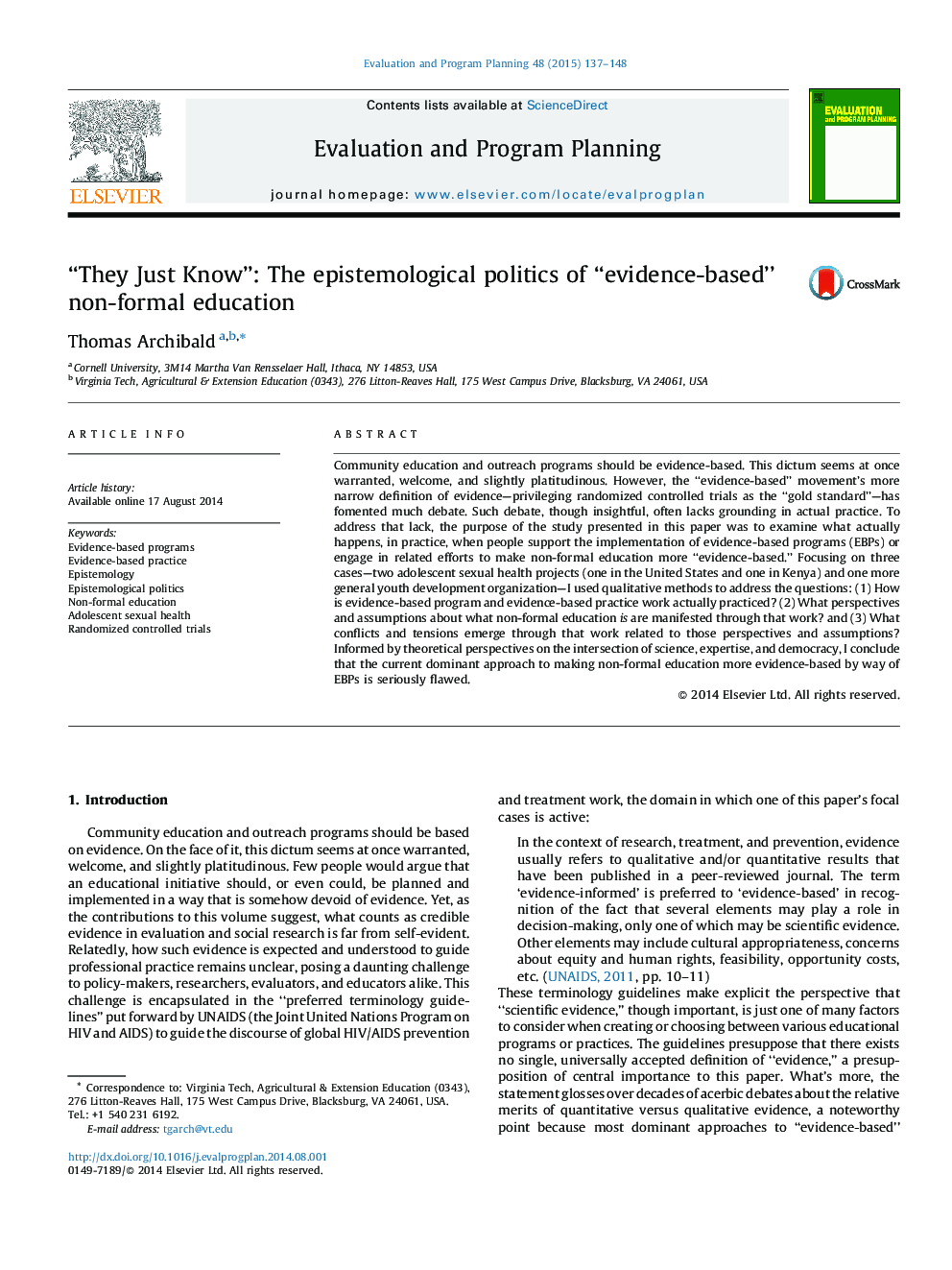| کد مقاله | کد نشریه | سال انتشار | مقاله انگلیسی | نسخه تمام متن |
|---|---|---|---|---|
| 6793375 | 540059 | 2015 | 12 صفحه PDF | دانلود رایگان |
عنوان انگلیسی مقاله ISI
“They Just Know”: The epistemological politics of “evidence-based” non-formal education
دانلود مقاله + سفارش ترجمه
دانلود مقاله ISI انگلیسی
رایگان برای ایرانیان
کلمات کلیدی
موضوعات مرتبط
علوم پزشکی و سلامت
پزشکی و دندانپزشکی
سیاست های بهداشت و سلامت عمومی
پیش نمایش صفحه اول مقاله

چکیده انگلیسی
Community education and outreach programs should be evidence-based. This dictum seems at once warranted, welcome, and slightly platitudinous. However, the “evidence-based” movement's more narrow definition of evidence-privileging randomized controlled trials as the “gold standard”-has fomented much debate. Such debate, though insightful, often lacks grounding in actual practice. To address that lack, the purpose of the study presented in this paper was to examine what actually happens, in practice, when people support the implementation of evidence-based programs (EBPs) or engage in related efforts to make non-formal education more “evidence-based.” Focusing on three cases-two adolescent sexual health projects (one in the United States and one in Kenya) and one more general youth development organization-I used qualitative methods to address the questions: (1) How is evidence-based program and evidence-based practice work actually practiced? (2) What perspectives and assumptions about what non-formal education is are manifested through that work? and (3) What conflicts and tensions emerge through that work related to those perspectives and assumptions? Informed by theoretical perspectives on the intersection of science, expertise, and democracy, I conclude that the current dominant approach to making non-formal education more evidence-based by way of EBPs is seriously flawed.
ناشر
Database: Elsevier - ScienceDirect (ساینس دایرکت)
Journal: Evaluation and Program Planning - Volume 48, February 2015, Pages 137-148
Journal: Evaluation and Program Planning - Volume 48, February 2015, Pages 137-148
نویسندگان
Thomas Archibald,